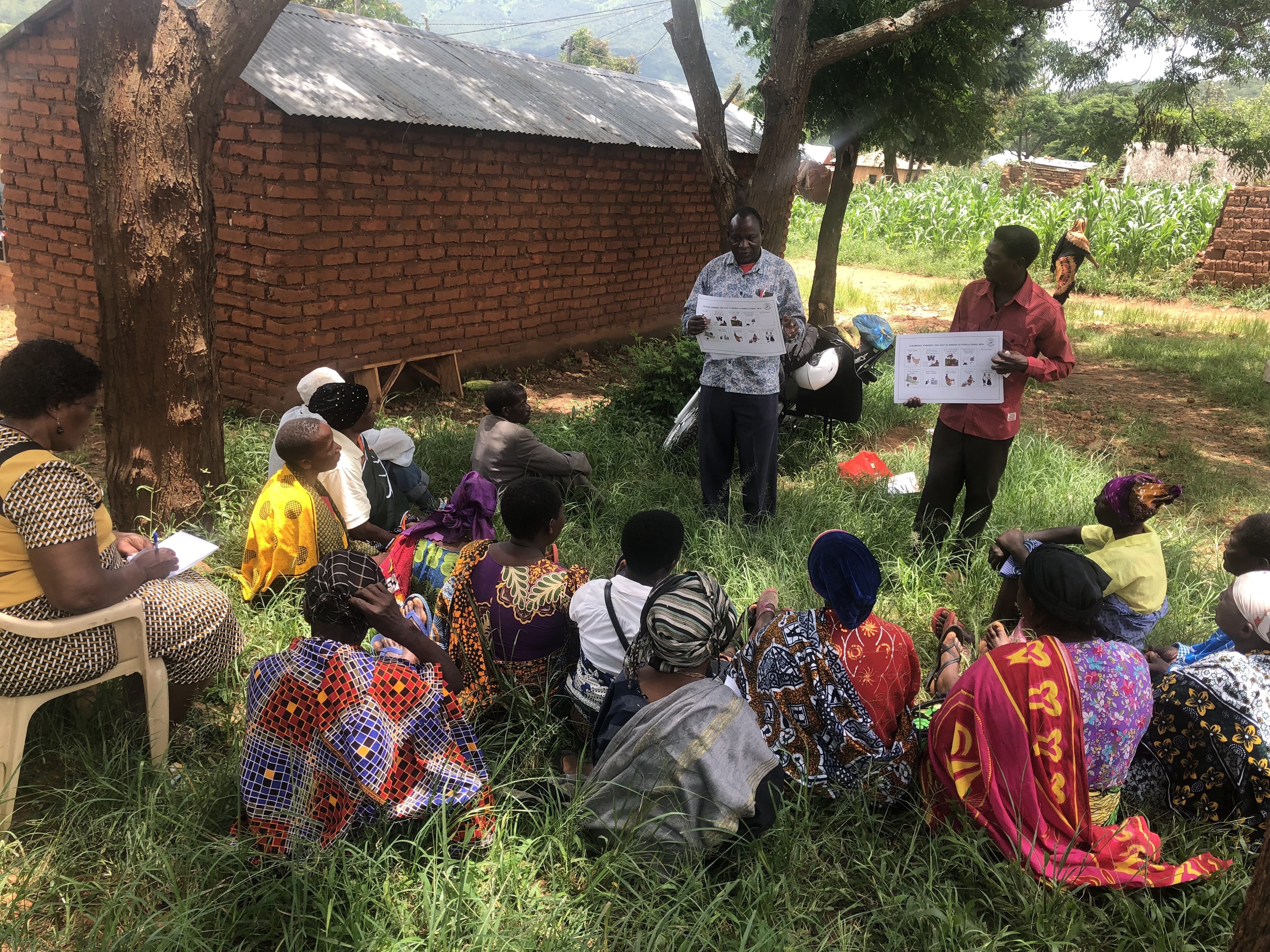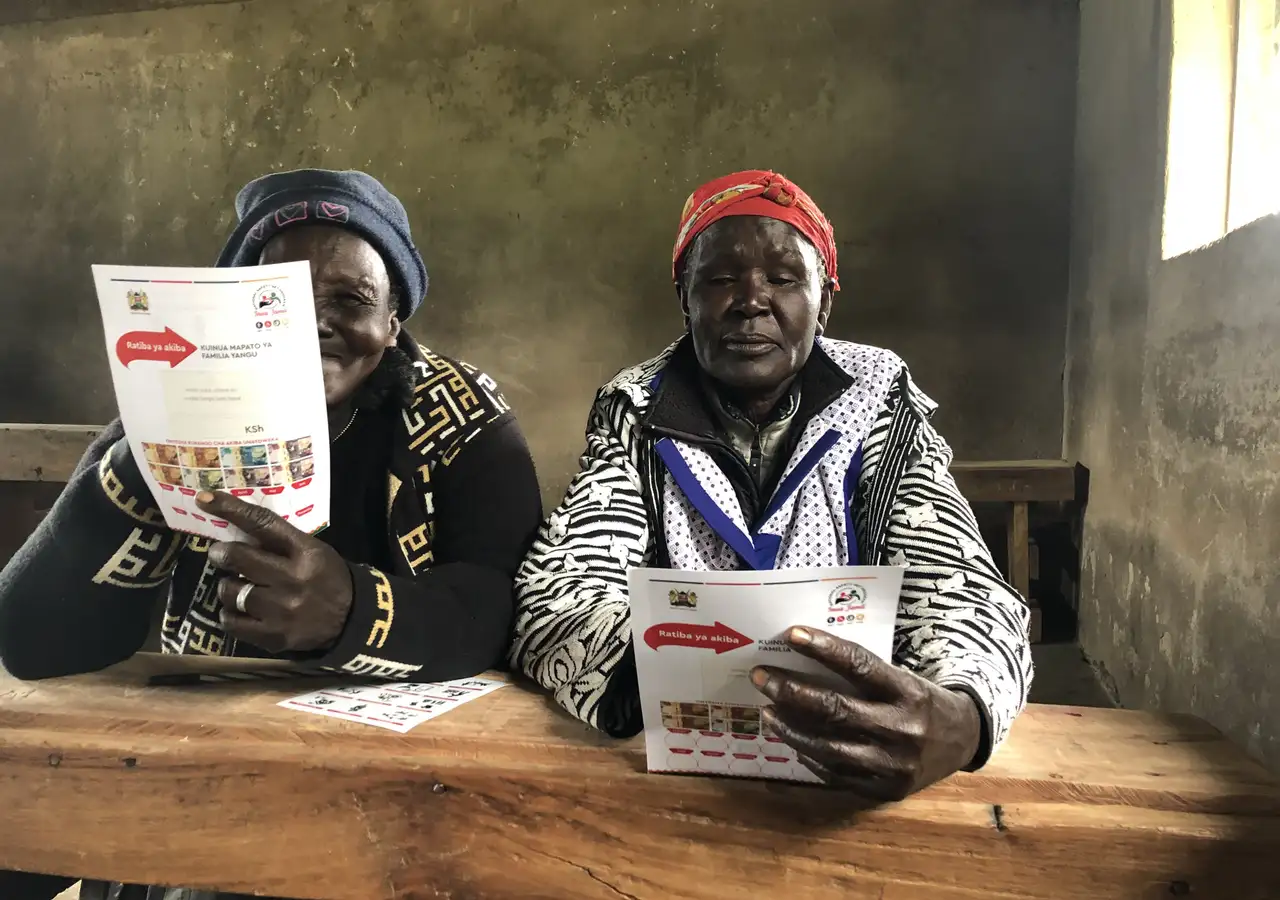Behavioural Insights for Cash Transfers

Location
Kenya, Tanzania, Ghana, DRC, South Sudan, Ethiopia, Madagascar
Sector
Social Protection
Type of Investment
Grant
Project Stage
Test & Transition and Scale
Length of Investment
2017 - 2024
Investment Overview
Ideas42 specialises in the application of behavioural science to social problems. With GIF funding they are partnering with the World Bank Social Protection and Job Practice to incorporate behavioural interventions to improve the outcomes of cash transfer programmes which support millions of the poorest households in Sub-Saharan Africa.
The Development Challenge
There is a rich empirical literature on the impact of cash transfers pointing to their positive effects on a range of outcomes relating to poverty reduction, productive inclusion, food security, school attendance and health. Given the increased coverage of cash transfers programmes over the last twenty years there is increasing interest in how complementary ‘cash plus’ can improve outcomes and cost effectiveness. The behavioural since literature points to how benefits from the cash transfers may be held back by mental models or behavioural constraints and suggests that simple interventions or adaptations may lead to significantly improved outcomes at low cost.

The Innovation
Ideas42 uses a behavioural discovery process to identify behavioural factors which influence how cash transfer recipients think about and utilise their transfer, and to design interventions informed by the behavioural science literature which can positively influence outcomes for recipients. Their work has identified a range of norms and mindsets among cash transfer recipients which inhibitive productive use in a range of different contexts. Ideas42 have designed a series of behavioural interventions anchored in self affirmation, mental accounting, goal-setting, plan making and adherence which are delivered through training, digitally, or in a community setting alongside the cash transfer.

Our Investment
GIF has invested a total of $4.62m to support this innovation - a $2.2m test and transition grant awarded in 2017, followed by a $2.4m scale grant in 2020. The objective of these investments were to enable ideas42 to design and evaluate these interventions in a range of different contexts while building the understanding and expertise of behavioural approaches with social protection agencies and the World Bank social protection and Jobs practice. The long run vision of success is that a broad and rigorous evidence base would de-risk the innovation, enabling wider uptake within the World Bank supported programmes.
Progress to date
Ideas42 have designed and evaluated behavioural interventions in seven different countries - Kenya, Tanzania, Ghana, DRC, South Sudan, Ethiopia, Madagascar. This research consistently finds positive impacts on a range of productive inclusion outcomes, including savings, goal setting, spending in line with stated priorities, clearing debt and making productive investments.The behavioural interventions typically cost less than $5 per person (as low as $0.22 for digitally delivered nudges), and ideas42 cost-effectiveness analysis suggests that these components were around 1.5 times more effective at increasing savings than simply giving the equivalent cash amount.
These positive results were instrumental in securing a government commitment to scale this work to 500,000 households benefiting from Tanzania’s Productive Safety Net Programme over the three years. The scale up started in 2022 and by early 2023 more than 190,000 HHs had received the intervention. With GIF funding to date ideas42 has also produced a range of practitioner tools and resources to popularise and promote the approach.
Behavioural Insights for Cash Transfers in numbers
Recipients were 65% more likely to save when receiving behavioural interventions
Intended reach of the current scale-up in Tanzania
Cost effectiveness multiplier for the digital innovation in DRC